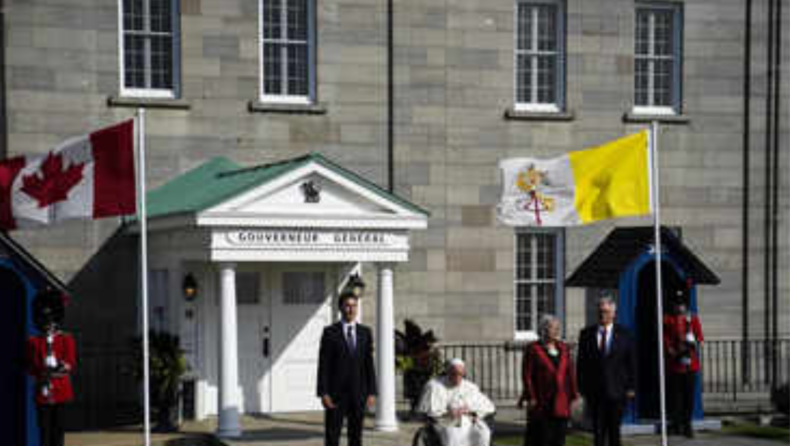
While visiting Canada, Pope Francis expressed regret and talked about pleading for forgiveness. One of the indigenous peoples’ “calls to action” was already met by that.
However, the Pope was criticized for not doing more to meet other demands and to take more concrete actions to atone for the Catholic Church’s part in the oppression, abuse, and cultural genocide of indigenous people in Canada over the course of this tour.
These requests have been made known to the Pope for some time. Restitution of priceless indigenous artifacts taken by the Vatican. Responsibility for individuals who committed abuse at Catholic-run institutions, and reparations and investment are a few of them.
Approximately 150,000 indigenous children were separated from families and sent to Church
Already, lives have been lost. You couldn’t simply go on, “says Edna Elias, one of the approximately 150,000 native children who were taken away from their families . They were sent to a residential school administered by a church.
“Sure, apologies were made, and that’s OK,” Edna responded sobfully, “but they are only words.”
She discussed the violence she endured beginning at the age of six and how she was forced to forget her Inuit culture and language. But she also discussed the numerous other ways that being indigenous has affected her life.
“Even before going to school, they gave us small tags to wear around our necks. We were tagged like with dog tags,” said W2 783, “W signifying western Arctic area number 2, the 783rd Eskimo registered from that region.”
Treatment has a direct bearing on the Vatican
Many indigenous people believe that this type of treatment directly relates to the Vatican and to another important demand that was not satisfied during this visit.
Just before Pope Francis was scheduled to preside over Mass outside of Quebec City, two people made their way to the front and took a stand in front of the altar. While spreading out a sizable banner that read, “Rescind the doctrine.” Their complaint was promptly and politely overruled.
The concept to which they were alluding was established by papal decrees from the fifteenth century. For many indigenous people, not just in Canada but also in the United States, South America, Australia, and other countries, it is essential. To outsiders, it would appear to be an abstract topic for a demonstration.
The Catholic Doctrine of Discovery, which dates to the 1400s, authorized European colonizers to annex non-Christian lands. In essence, non-Christians were viewed as savages.
On this trip, the Pope met with Chief Ghislain Picard, the regional chief of the Assembly of the First Nations for Quebec and Labrador.
“Principles are essential”
However, he has been happy with the dialogue that has occurred and the knowledge of indigenous concerns that has been raised during the papal visit. He places importance on rejecting the Doctrine of Discovery.
The concept date back to the 15th Century. But it is still relevant today because, in the eyes of the First Nations, “principles are vital. Rescinding the doctrine would show that the Vatican is open, willing to compromise, and study its own past,” he claims.
Chief Picard highlights the ways that colonial beliefs are still impeding the advancement of indigenous rights. They believes that this is due to the Catholic Church’s discriminatory endorsement of explorers.
Indigenous peoples around the world are arguing the need of rescinding this concept
Indigenous people from all around the globe are debating the significance of repealing this ideology, adds Chief Picard. So it goes beyond simply Canada.
The papal edicts of the 15th century were the result of European kings petitioning the Pope for approval of their expansion. Also, the establishment of a slave trade.
Later, disregarding the presence of indigenous people, they were used as the foundation for staking claims to territory and resources that were utilized not just by Catholic explorers but also by other Europeans.
The idea has now been formally denounced by Christian organizations all across the world. Including the Canadian Conference of Catholic Bishops.
The Pope did not repudiate the teaching, but he did condemn it
From his wheelchair on the plane, Pope Francis told reporters, “This colonialism doctrine is terrible, it is cruel.”
“Even today, it is frequently employed.” Occasionally, some bishops from particular nations inform me that they are handed imperialist criteria when they seek a loan from international organizations.
While acknowledging that there are still remnants of colonialism in existence today we must go back and correct the errors. The Pope said it’s an all-encompassing subject.
It wasn’t immediately obvious if it meant that this Catholic belief, which even the Pope admits has a negative effect on people’s lives today. It will soon be rejected.
But the Vatican claims that the issue is now being discussed.













